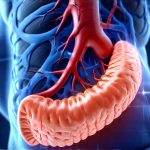Peptic ulcers are a common health concern affecting millions worldwide. They represent sores that develop along the lining of the stomach, lower esophagus, or small intestine. While often treatable, understanding the signs, causes, and available treatment options is crucial for effective management and prevention. This article aims to provide comprehensive information about these conditions, offering insights into their nature and how individuals can navigate potential challenges related to them.
The discomfort associated with peptic ulcers can range from mild ache to sharp, burning pain, significantly impacting daily life. Recognizing the symptoms and understanding underlying causes are essential first steps toward seeking appropriate care and achieving relief. Early diagnosis and proper treatment can prevent complications and improve overall well-being.
Understanding Peptic Ulcers
Peptic ulcers aren’t a single disease but rather represent damage to the protective lining of various parts of the digestive system. This damage occurs when stomach acid penetrates these defenses, leading to erosion. The location of the ulcer dictates its specific characteristics and potential symptoms. For instance, gastric ulcers occur in the stomach, duodenal ulcers in the duodenum (the first part of the small intestine), and esophageal ulcers in the esophagus.
It’s important to remember that peptic ulcers aren’t typically caused by stress or lifestyle factors alone, though these can exacerbate symptoms. They often arise from specific infections or prolonged use of certain medications, as we will explore further.
Causes of Peptic Ulcers
The primary causes of peptic ulcers have evolved in understanding over time. While previously attributed largely to stress and diet, research now points to more definitive origins, with Helicobacter pylori (H. pylori) infection being the most common culprit. Other significant factors include long-term use of nonsteroidal anti-inflammatory drugs (NSAIDs).
The Role of H. pylori Infection
This bacterium infects the stomach lining and can gradually erode the protective mucus layer, making the stomach vulnerable to acid damage. Many people contract H. pylori in childhood, often through contaminated food or water. While some individuals remain asymptomatic carriers, others develop peptic ulcers. Eradicating this infection is a key component of treating many ulcer cases.
NSAID-Induced Ulcers
Nonsteroidal anti-inflammatory drugs (NSAIDs), commonly used for pain relief and inflammation reduction, can also contribute to ulcer development. These medications inhibit the production of prostaglandins, substances that protect the stomach lining. Prolonged or excessive use significantly increases the risk, particularly in older adults. It is important to consult with a healthcare professional about potential risks before starting long-term NSAID treatment.
Less Common Contributing Factors
While H. pylori and NSAIDs are dominant causes, other less frequent factors can play a role. These include Zollinger-Ellison syndrome (a rare condition causing excessive acid production), certain medical conditions affecting stomach acidity, and in very rare instances, gastric cancer. Smoking also increases the risk of developing ulcers and hinders healing.
Treatment Options for Peptic Ulcers
Treatment strategies depend on the underlying cause and severity of the ulcer. However, a common goal is to reduce stomach acid, promote healing, and prevent recurrence. These approaches often involve medication, lifestyle adjustments, and in some cases, surgical intervention.
Medications for Acid Reduction
Several types of medications are used to lower stomach acidity and facilitate healing. Proton pump inhibitors (PPIs) are frequently prescribed as they effectively block acid production. H2 receptor antagonists also reduce acid secretion but may be less potent than PPIs. Antacids provide temporary relief by neutralizing stomach acid, offering symptomatic control.
Eradicating H. pylori Infection
If an H. pylori infection is identified, treatment typically involves a combination of antibiotics and acid-reducing medication. This regimen aims to eliminate the bacteria and allow the ulcer to heal. Adherence to the prescribed antibiotic course is vital for successful eradication, as incomplete treatment can lead to resistance and relapse.
Lifestyle Modifications and Preventative Measures
Alongside medical treatments, lifestyle changes are beneficial in managing peptic ulcers and preventing their recurrence. Avoiding smoking, limiting alcohol consumption, and reducing stress levels can contribute significantly to healing. Dietary modifications, such as avoiding spicy or acidic foods that exacerbate symptoms, may also be helpful for some individuals. Regular monitoring by a healthcare professional is essential to track progress and adjust treatment plans accordingly.
It’s important to reiterate this information is intended for general knowledge and informational purposes only, and does not constitute medical advice. Always consult with a qualified healthcare provider for any health concerns or before making any decisions related to your health or treatment. Self-treating can be dangerous, and professional medical guidance is essential for accurate diagnosis and effective management of peptic ulcers.


















